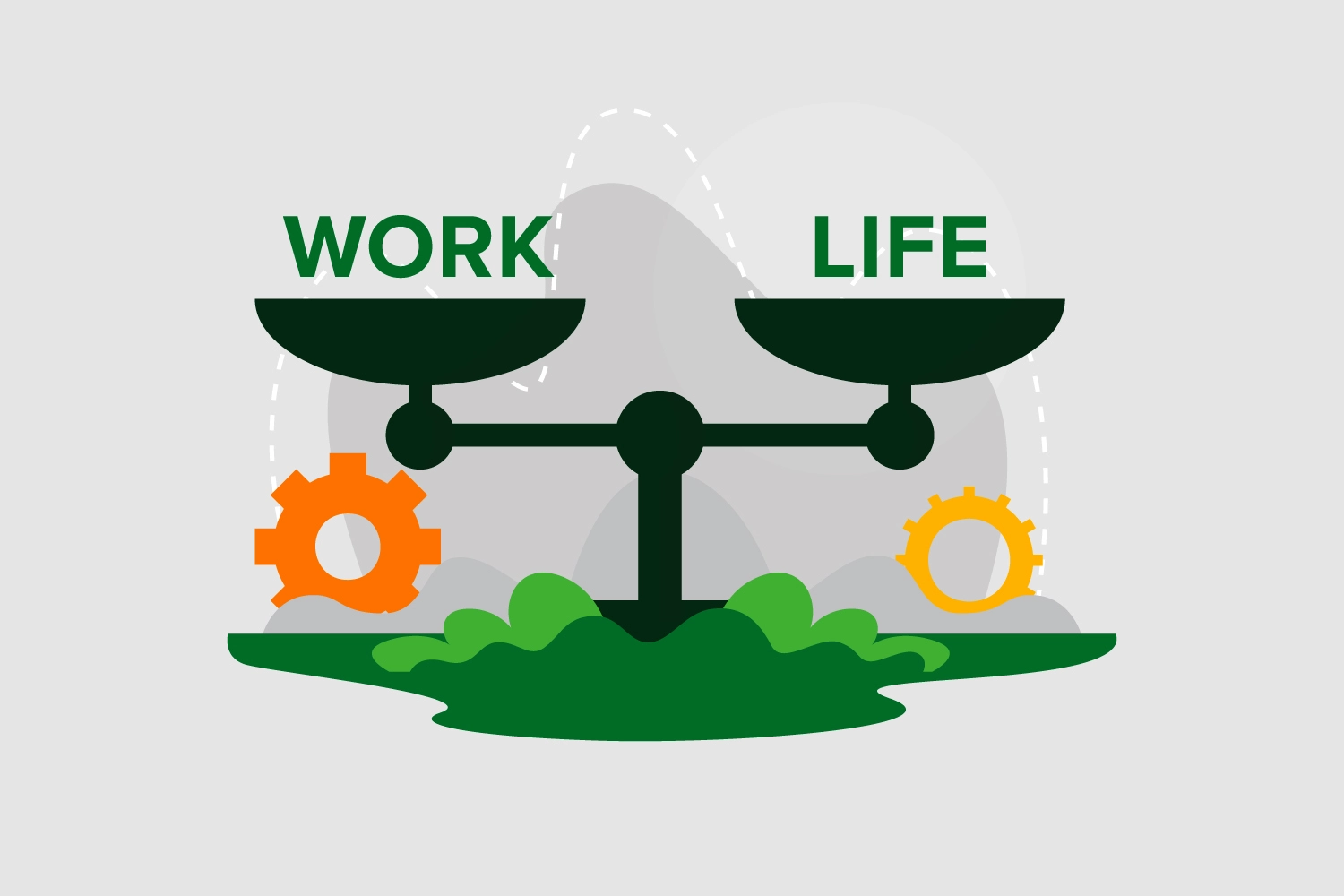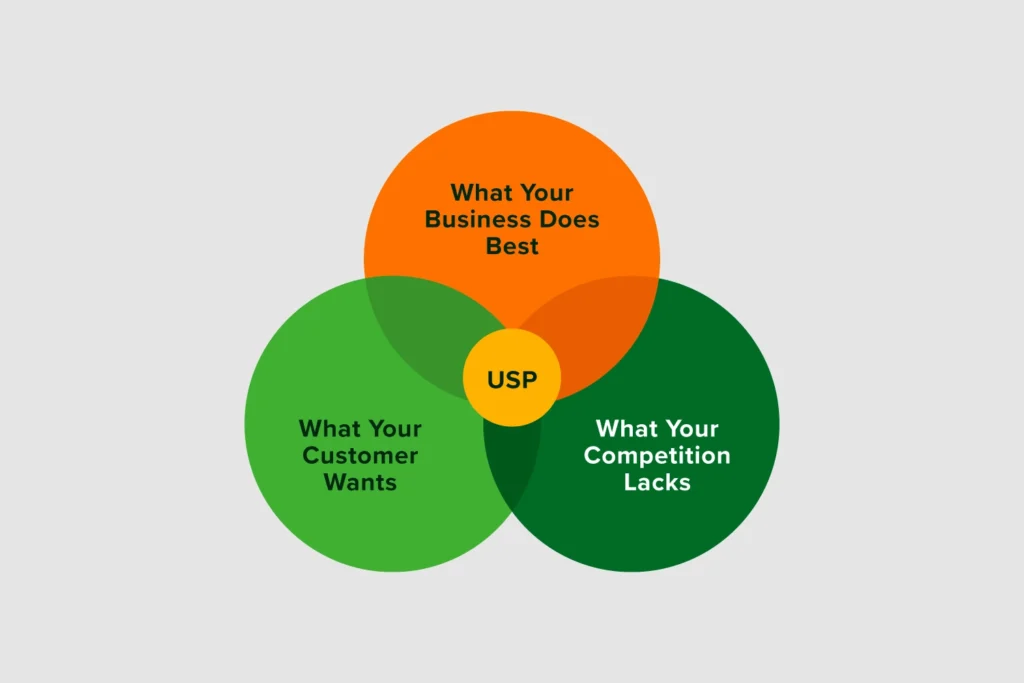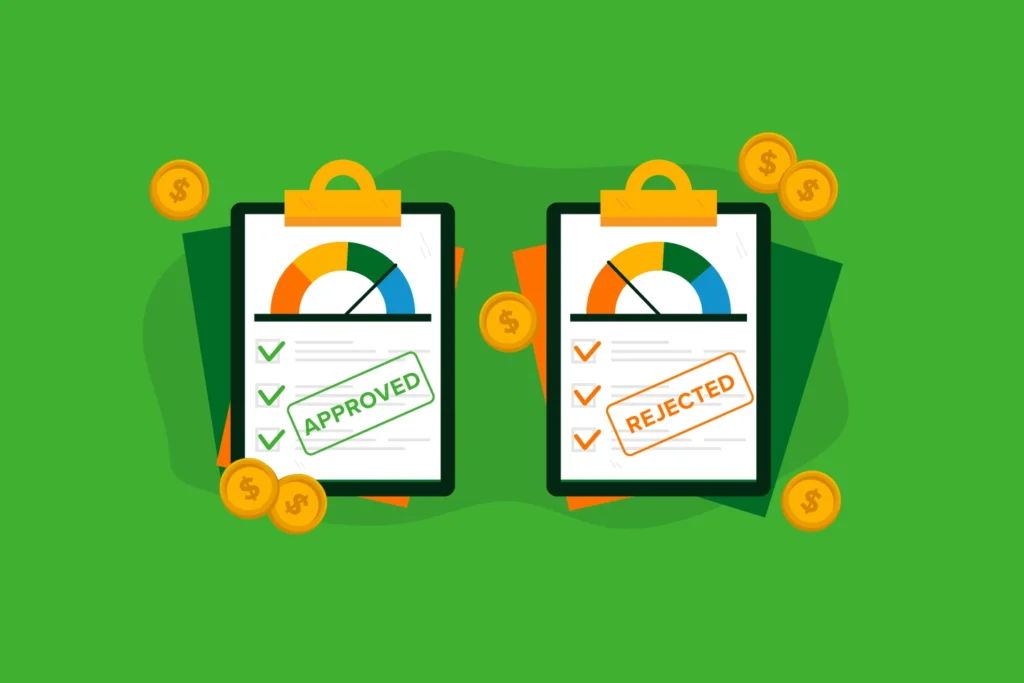Disclaimer: The articles published here on the City of Eau Claire Economic Development Division website are meant to be a helpful starting point as you explore doing business in our community. They’re not the final word on requirements or what’s best for your unique situation. We always recommend checking in with legal, financial, or other professionals for advice tailored to your business.
So, you’ve officially launched your business in beautiful Eau Claire, Wisconsin. It’s taken a lot of energy, and you’re finally growing at a steady pace.
But something else is happening too: You’re working non-stop, thinking about your business at all hours, maybe forgetting when you last took a full weekend off. The truth is, the first year is going to ask a lot of you, but setting up even a modest measure of work-life balance now is an investment in both your mental stamina and your business’s resilience.
Let’s walk through how you can build healthy habits, set boundaries, and keep yourself sane while running your new business in the Eau Claire ecosystem.
1. Recognize what “balance” really means.
Work-life balance doesn’t mean splitting your day neatly into eight hours of work and eight hours of leisure. In your first year of business, that’s usually not realistic, and that’s okay. Balance is more about intentional trade-offs than perfect symmetry. It’s learning when to sprint, when to slow down, and when to give yourself permission to rest without guilt.
In Eau Claire, where the pace feels a little friendlier and people pause to chat at coffee shops, “balance” often looks different than it might in a bigger city.
It might mean:
- Powering through a focused work sprint early in the week, then blocking Thursday night for family dinner and the Sounds Like Summer Concert Series in Phoenix Park.
- Keeping one weekend day intentionally light so you can recharge with friends, go on a hike near Carson Park, or enjoy some quiet time downtown in the afternoon.
- Accepting that some late nights are part of the startup season but protecting enough rest that those nights don’t become every night.
- Deciding that Sunday mornings are a sacred day of rest, reserved for brunch with friends and a walk along the Chippewa River Trail—no laptop allowed.
True balance doesn’t come from rigid schedules; it comes from rhythms that keep you energized and connected to the reasons you started your business in the first place. The goal isn’t to work less, but to work smarter and to make sure that life in Eau Claire, with all its community and charm, stays part of the journey.
2. Be realistic and flexible about your first-year expectations.
Many new entrepreneurs start out with sky-high expectations: You’ll get the perfect storefront set up, build a killer website, master social media, grow a loyal customer base, and somehow still have time for family, friends, exercise, and a healthy diet. It’s a noble vision… but also a fast track to burnout.
The reality is the first year of business will test every ounce of your patience and energy because you can’t do everything well in year one, and you don’t need to. Your only job is to prove your idea works and create systems you can scale later. That shift in mindset—progress over perfection—can save you an enormous amount of stress.
So, start simple. Choose one clear business goal to anchor your year. Maybe it’s reaching your first $50,000 in sales or locking in three steady wholesale accounts. Pick the one that matters most to your long-term vision and let that guide your priorities.
Everything else might be a little messy, and that’s okay. Some weeks your marketing might slide while you focus on operations. Other times, customer service might take center stage while bookkeeping takes a backseat. As long as your business keeps learning and adapting, you’re on the right track.
Keep in mind, balance is personal metrics too. Stop and ask yourself:
- Did you work fewer than 60 hours last week?
- Did you take at least one full day off?
- Did you unplug for a full 24 hours this month?
If those answers start drifting toward “no,” it’s time to adjust your calendar to rebalance how you spend your time. For example, if you’re pouring 70% of your energy into marketing but your customer experience is slipping, it’s time to pivot. The best entrepreneurs are the ones who recognize when to refocus.
And remember to give yourself some grace. Your first year is the foundation, so focus on making it strong, not perfect.
3. Protect the non-work blocks on your calendar.
In your first year, it’s easy to fall into the trap of “I’ll just do everything myself.” The truth is, you can do that, but not for long, because you’ll burn out before your business ever finds its rhythm.
One of the simplest ways to avoid that spiral is to give your personal time the same respect you give client meetings or deadlines. That means treating your non-work hours as sacred appointments. Literally.
Open your calendar—digital or paper, whatever you’ll actually look at—and block off recharge time before your week fills up. On Sunday night, add a couple of anchors: maybe a “Business Sprint” from 7:00am-10:00am for your hardest tasks and a “Personal Recharge” from 5:00pm-7:00pm for your mental reset. Color-code it if that helps too—blue for business, green for you. Seeing those colors side-by-side is a small but powerful reminder that both matter.
And when work starts to creep over your boundaries, pause and ask yourself: Is this truly urgent, or is it just loud? If it won’t meaningfully impact your business this week, it can wait.
At the end of the day, balance can mean letting your schedule reflect your values. By scheduling in time for yourself, you’re not being indulgent; you’re protecting your ability to show up sharp and creative when it counts. And you’re making a quiet but powerful statement to your team: Your time is a resource, and your well-being is part of the business plan.
4. Build meaningful boundaries (Yes, even in a startup).
When you care deeply about your business, the line between “work” and “everything else” gets blurry fast. You’ll answer an email at midnight, respond to a DM during dinner, find yourself mentally drafting next week’s marketing copy while brushing your teeth, and so on. That’s normal in your first year, but if you don’t draw a few lines, that nonstop mode becomes your new default.
Don’t think of boundaries as walls; they’re filters that protect your focus and your energy so you can stay creative and grounded long-term.
Try starting small:
- Create a “shutdown ritual.” Pick a time—say, 9:30pm or 10:00pm—to close your laptop, jot down your top three tasks for tomorrow, and step away. Stretch, take a quick walk, sit on the porch for a few minutes, etc. That mental cue helps your brain shift gears from “build mode” to “rest mode.”
- Set digital limits. Use the “Do Not Disturb” setting on your phone after a certain hour, or silence notifications from business apps like Instagram or Slack altogether. You’ll still see messages in the morning, and you’ll answer them with a clearer head.
- Designate real off time. Decide early what days or hours are yours. Maybe you’ll work the occasional Saturday for an event, but Saturday mornings are yours for the farmers market or coffee with friends.
In Eau Claire, where the culture leans a little slower paced, drawing these types of boundaries early will make you more effective, and it’s much easier to build that rhythm in from the start. You’ll still notice plenty of local entrepreneurs who hustle hard, but they also make time for a run or night out too. Follow their lead. Work hard, yes, but let your boundaries remind you why you started this journey.
5. Leverage local community for support and recharging opportunities.
One of the best parts of starting a business in Eau Claire is that you’re not doing it alone. This city has a strong ecosystem of people who genuinely want to see local entrepreneurs succeed, so lean into that support whenever you can. It’ll keep you grounded and inspired during those moments when the first-year chaos feels heavy.
Build your circle.
Start by finding other business owners who are walking a similar path. There are plenty of networking opportunities year-round where you can swap stories, compare notes, and pick up hard-won wisdom. Local coworking spaces often attract freelancers and founders who get what startup life feels like too. Even just scheduling a casual coffee once a month can be part therapy, part brainstorming session.
Create your own recharge spots.
Eau Claire is full of places that make it easy to breathe. Take a walk along the Chippewa River Trail when your brain needs a reset, grab a quiet corner at one of our many coffee shops to think through a new idea, or roll out a mat at a yoga studio after a packed workday. When you’re not working on your business, work on yourself because your creativity is one of your greatest business assets.
Lean on local talent.
You don’t have to do everything solo. Eau Claire has a deep bench of local professionals ready to help, from virtual assistants who can manage inboxes and invoicing to marketing firms that can fine-tune your branding. Outsourcing is another way to reclaim time for the high-value work only you can do. Even bringing someone on for five hours a week can give you the breathing room you need to rest or plan.
The beauty of Eau Claire’s business community is that it’s human-scale; people remember your name, celebrate your wins, and show up when you ask for help. Use that. Let the community fuel your motivation and remind you that entrepreneurship here is about building a life that feels connected and sustainable.
6. Automate repetitive tasks to free up your headspace.
Running a business in your first year can feel like juggling flaming torches—emails, invoices, social media, scheduling, inventory, customer messages, and somehow, you’re supposed to keep smiling through it all. The trick isn’t to get faster at juggling; it’s to put some of those torches down altogether. That’s where automation, or building smarter systems, come in.
Look into:
- Automating the basics. Use scheduling tools like Calendly or Square Appointments so clients can book time with you without a dozen back-and-forth emails. Set up email templates for common replies. And schedule social media posts through tools like Later or Meta’s Business Suite.
- Building a dashboard. Platforms like QuickBooks, Square, or Google Sheets can show your weekly “business health” at a glance—how many orders came in, what’s in the bank, what invoices are pending. Instead of staying up at night wondering where you stand, you’ll know.
- Batching your work. If your focus peaks in the morning, block that time for deep work—finances, strategy, creative thinking. Then, save your afternoons for admin or light communication. Matching your natural rhythm to your workload will multiply your productivity.
The goal of automating isn’t to squeeze more work into your day; it’s to clear the mental clutter that drains your energy. The more you let technology handle the busywork, the more bandwidth you’ll have for both your business and your life. Don’t think of it as stepping back either. When you invest in software that frees up headspace, you’ll find it’s easier to stay balanced and connected to the reasons you started this business in the first place.
7. Celebrate small wins and guard your energy.
With a lot happening your first year, it’s easy to focus so hard on what’s not done yet that you forget how far you’ve already come. But those small milestones—the first café regular who remembers your name, your first online sale, your first glowing review—those moments matter. They’re proof that all your effort is working.
Make it a habit to celebrate those wins, no matter how small they seem. Start a simple “win board” in your workspace or a note in your phone, and write down things like “Launched my website,” “Booked my first client,” “Made rent without panicking,” “Got mentioned in a local issue of Volume One.” When you hit a rough patch, and you will, those reminders can shift your mindset from frustration to perspective.
While you’re at it, learn how to guard your energy; it’s just as important as tracking your wins. If you have family dinner at 6:00pm, don’t book a client call right after. The world won’t fall apart if that email waits until morning. And if you hit that mid-afternoon slump where your brain feels like static, that’s biology telling you to pause. So, take those “micro-breaks” that Eau Claire makes so easy: a 15-minute coffee at a shop on Barstow Street, a walk through Phoenix Park, lunch outside in Oakwood Hills, a few deep breaths by the river. These aren’t indulgences; they’re fuel that will help you come back sharper, calmer, and more creative.
Think of your energy as a renewable resource. You can’t pour from an empty cup, but you can refill it through small daily pauses and moments of joy. The entrepreneurs who build sustainable success here aren’t necessarily the ones who work the longest hours; they’re the ones who know when to stop to recharge and appreciate how far they’ve come.
8. Schedule regular check-ins with yourself.
Running a business is a marathon, not a sprint. And like any long run, you have to stop now and then to check your pace. Otherwise, you’ll look up one day and realize you’ve been sprinting in the wrong direction.
At the end of each month, take 15 quiet minutes, ideally somewhere that feels separate from your workspace. Then, pull out a notebook or open a notes app and ask yourself a few simple but powerful questions:
- Did I feel more drained or energized by my business this month?
- What’s one small change I can make next month to protect my personal time?
- What’s one thing I can tweak to make the business run smoother or smarter?
- Did I take at least one full day where I didn’t check emails, messages, or metrics?
These questions aren’t meant to spark guilt; they’re there to build awareness. When you notice patterns early, like always working late on Thursdays or skipping meals on busy days, you can make small adjustments before they turn into burnout. Think of these monthly check-ins as your internal dashboard, just like the one you use to track sales or cash flow. You’re measuring alignment, and over time, you’ll start to see which habits make you more productive and which ones quietly drain your spark.
If you realize your goals are shifting, great. That means you’re growing. Maybe your first-year goal was simply to survive, and now you’re ready to thrive. Maybe you planned to work six days a week but have learned you’re more effective with five. Staying flexible keeps both you and your business healthy.
In Eau Claire, success often grows out of steady, sustainable effort, making these quiet reflection moments one of your best business tools. They remind you that balance isn’t achieved once; it’s maintained over time, through small, intentional choices.
Conclusion
In the first year of business, you’ll hustle hard, test big ideas, make some mistakes, celebrate some wins, and maybe ask yourself, “When can I relax?” The short answer is you don’t wait for “relaxation time.” You build it in. Set up routines now that protect your personal well-being even as you scale because a business that runs you ends up running you into the ground. Meanwhile, a business you run and live with becomes your partner in making the life you imagined.
Article Cover Illustration by Freepik





